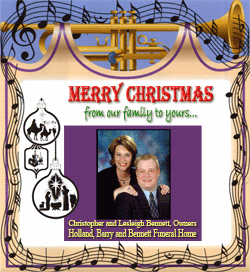|
 Imprisoned for nearly three decades for his fight against
white minority rule, Mandela emerged determined to use his
prestige and charisma to bring down apartheid while avoiding a
civil war. Imprisoned for nearly three decades for his fight against
white minority rule, Mandela emerged determined to use his
prestige and charisma to bring down apartheid while avoiding a
civil war.
"The time for the healing of the wounds has come. The moment to
bridge the chasms that divide us has come," Mandela said in his
acceptance speech on becoming South Africa's first black
president in 1994.
"We have, at last, achieved our political emancipation."
In 1993, Mandela was awarded the Nobel Peace Prize, an honor he
shared with F.W. de Klerk, the white Afrikaner leader who freed
him from prison three years earlier and negotiated the end of
apartheid.
Mandela went on to play a prominent role on the world stage as
an advocate of human dignity in the face of challenges ranging
from political repression to AIDS.
He formally left public life in June 2004 before his 86th
birthday, telling his adoring countrymen: "Don't call me. I'll
call you". But he remained one of the world's most revered
public figures, combining celebrity sparkle with an unwavering
message of freedom, respect and human rights.
Whether defending himself at his own treason trial in 1963 or
addressing world leaders years later as a greying elder
statesman, he radiated an image of moral rectitude expressed in
measured tones, often leavened by a mischievous humor.

"He is at the epicenter of our time, ours in South Africa, and
yours, wherever you are," Nadine Gordimer, the South African
writer and Nobel Laureate for Literature, once remarked.
Mandela's years behind bars made him the world's most celebrated
political prisoner and a leader of mythic stature for millions
of black South Africans and other oppressed people far beyond
his country's borders.
Charged with capital offences in the 1963 Rivonia Trial, his
statement from the dock was his political testimony.
"During my lifetime I have dedicated myself to this struggle of
the African people. I have fought against white domination, and
I have fought against black domination.
"I have cherished the ideal of a democratic and free society in
which all persons live together in harmony and with equal
opportunities," he told the court.
"It is an ideal I hope to live for and to achieve. But if needs
be, it is an ideal for which I am prepared to die."
DESTINED TO LEAD
Nelson Rolihlahla Mandela was born on July 18, 1918, destined to
lead as the son of the chief councilor to the paramount chief of
the Thembu people in Transkei.
He chose to devote his life to the fight against white
domination. He studied at Fort Hare University, an elite black
college, but left in 1940 short of completing his studies and
became involved with the African National Congress (ANC),
founding its Youth League in 1944 with Oliver Tambo and Walter
Sisulu.
Mandela worked as a law clerk then became a lawyer who ran one
of the few practices that served blacks.

In 1952 he and others were charged for violating the Suppression
of Communism Act but their nine-month sentence was suspended for
two years.
Mandela was among the first to advocate armed resistance to
apartheid, going underground in 1961 to form the ANC's armed
wing, Umkhonto weSizwe, or 'Spear of the Nation' in Zulu.
He left South Africa and travelled the continent and Europe,
studying guerrilla warfare and building support for the ANC.
After his return in 1962, Mandela was arrested and sentenced to
five years for incitement and illegally leaving the country.
While serving that sentence, he was charged with sabotage and
plotting to overthrow the government along with other
anti-apartheid leaders in the Rivonia Trial.
Branded a terrorist by his enemies, Mandela was sentenced to
life imprisonment in 1964, isolated from millions of his
countrymen as they suffered oppression, violence and forced
resettlement under the apartheid regime of racial segregation.
He was incarcerated on Robben Island, a penal colony off Cape
Town, where he would spend the next 18 years before being moved
to mainland prisons.
He was behind bars when an uprising broke out in the huge
township of Soweto in 1976 and when others erupted in violence
in the 1980s. But when the regime realized it was time to
negotiate, it was Mandela to whom it turned.
In his later years in prison, he met President P.W. Botha and
his successor de Klerk.
When he was released on February 11, 1990, walking away from the
Victor Verster prison hand-in-hand with his wife Winnie, the
event was watched live by television viewers across the world.
"As I finally walked through those gates ... I felt even at the
age of 71 that my life was beginning anew. My 10,000 days of
imprisonment were at last over," Mandela wrote of that day.

[to top of second column] |
 ELECTIONS AND RECONCILIATION
In the next four years, thousands of people died in political
violence. Most were blacks killed in fighting between ANC
supporters and Zulus loyal to Mangosuthu Buthelezi's Inkatha
Freedom Party, although right-wing whites also staged violent
actions to upset the moves towards democracy. Mandela prevented a racial explosion after the
murder of popular Communist Party leader Chris Hani by a white
assassin in 1993, appealing for calm in a national television
address. That same year, he and de Klerk were jointly awarded the
Nobel Peace Prize.
Talks between the ANC and the government began in 1991, leading to
South Africa's first all-race elections on April 27, 1994.
The run-up to the vote was marred by fighting, including gun battles
in Johannesburg townships and virtual war in the Zulu stronghold of
KwaZulu Natal.
But Mandela campaigned across the country, enthralling adoring
crowds of blacks and wooing whites with assurances that there was a
place for them in the new South Africa.
The election result was never in doubt and his
inauguration in Pretoria on May 10, 1994, was a celebration of a
peoples' freedom.
Mandela made reconciliation the theme of his presidency. He took tea
with his former jailers and won over many whites when he donned the
jersey of South Africa's national rugby team — once a symbol of
white supremacy — at the final of the World Cup in 1995 at
Johannesburg's Ellis Park stadium.
The hallmark of Mandela's mission was the Truth and Reconciliation
Commission which investigated apartheid crimes on both sides and
tried to heal the wounds. It also provided a model for other
countries torn by civil strife.

In 1999, Mandela, often criticized for having a woolly grasp of
economics, handed over to younger leaders — a voluntary departure
from power cited as an example to long-ruling African leaders. A restful retirement was not on the cards as Mandela shifted his
energies to fighting South Africa's AIDS crisis.
He spoke against the stigma surrounding the
infection, while successor Thabo Mbeki was accused of failing to
comprehend the extent of the crisis.
The fight became personal in early 2005 when Mandela lost his only
surviving son to the disease.
But the stress of his long struggle contributed to the breakup of
his marriage to equally fierce anti-apartheid campaigner Winnie.
The country shared the pain of their divorce in 1996 before watching
his courtship of Graca Machel, widow of Mozambican President Samora
Machel, whom he married on his 80th birthday in 1998.
Friends adored "Madiba," the clan name by which he is known.
People lauded his humanity, kindness, attention and dignity.
Unable to shake the habits of prison, Mandela rose daily between 4
a.m. and 5 a.m. to exercise and read. He drank little and was a
fervent anti-smoker.
An amateur boxer in his younger days, Mandela often
said the discipline and tactics drawn from training helped him to
endure prison and the political battles after his release.
RAINBOW NATION
But prison and old age took their toll on his health.
Mandela was treated in the 1980s for tuberculosis and later required
an operation to repair damage to his eyes as well as treatment for
prostate cancer in 2001. His spirit, however, remained strong.
"If cancer wins I will still be the better winner," he told
reporters in September of that year. "When I go to the next world,
the first thing I will do is look for an ANC office to renew my
membership."

Most South Africans are proud of their
post-apartheid multi-racial "Rainbow Nation."
But Mandela's legacy of tolerance and reconciliation has been
threatened in recent years by squabbling between factions in the ANC
and social tensions in a country that, despite its political
liberation, still suffers great inequalities.
Mandela's last major appearance on the global stage came in 2010
when he donned a fur cap in the South African winter and rode on a
golf cart, waving to an exuberant crowd of 90,000 at the soccer
World Cup final, one of the biggest events in the country's
post-apartheid history.
"I leave it to the public to decide how they should remember me," he
said on South African television before his retirement.
"But I should like to be remembered as an ordinary South African who
together with others has made his humble contribution."
(Writing by Andrew Quinn and Jon Herskovitz;
editing by Pascal
Fletcher and Angus MacSwan)
[© 2013 Thomson Reuters. All rights
reserved.] Copyright 2013 Reuters. All rights reserved. This material may not be published,
broadcast, rewritten or redistributed. |